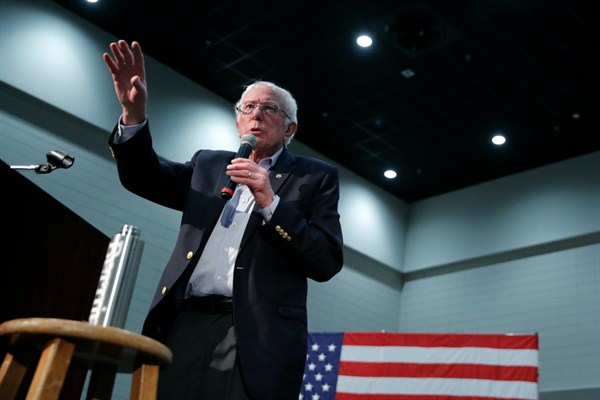Bernie Sanders’ remarkable staying power in the Democratic Party’s presidential primaries—including narrow leads in polls in Iowa and New Hampshire, and now a slight edge over former Vice President Joe Biden in a recent national poll—has unsettled the U.S. political establishment. His revived presidential campaign increases the possibility that Democrats will select, and Americans elect, a left-wing nominee who could upend America’s global role, but in a very different way than President Donald Trump.
In contrast to his 2016 presidential run, which treated foreign policy as an afterthought, the Vermont senator’s 2020 campaign has been actively challenging longstanding shibboleths of American exceptionalism and U.S. global leadership. As president, Sanders would like to slash U.S. defense spending and reduce the nation’s military footprint, rein in globalization to give it a human face, aggressively curb greenhouse gas emissions, and reorient U.S. human rights policy from promoting ideals abroad to living up to them at home. Foreign policy elites are skeptical, but his positions resonate with broad swaths of the American electorate.
The radicalism of his platform is undeniable. Sanders is the Howard Zinn of U.S. presidential candidates. He interprets American politics, including U.S. foreign policy, from the perspective of the little guy who has been taken for a ride. His stump speeches indict a U.S. political class captured by corporate special interests, distorting domestic public policy and locking America into imperialism and militarism abroad. His lodestar is not the national interest but a cosmopolitan democratic socialism that sees all peoples globally struggling against the same forces of inequality, injustice and oppression. The contrast with Trump’s hyper-nationalist “America First” approach could not be greater. But Sanders also differs markedly from Biden, a centrist who speaks the language of power and leadership, and even from his progressive counterpart Elizabeth Warren, whose foreign policy is informed by economic nationalism.

